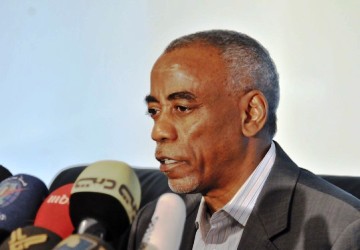Sudan and South Sudan agree to demarcate border
February 16, 2012 (KHARTOUM) — Delegations Khartoum and Juba agreed to immediately demarcate the border between the two countries in a bid to settle a number of pending issues they started to discuss before the independence of South Sudan in July 2011.

Yahya al-Hussein, a member of Sudan’s negotiating team told reporters in Khartoum on Thursday that the two countries agreed to start immediately to draw the northern border of the breakaway South Sudan with the Sudan and to end it within three months.
He said that this demarcation will not include five areas disputed by Khartoum and Juba, adding talks will continue over it.
Besides Abyei, the two parties diverge over the ownership of Kefia Kingi on the border between South Darfur and Western Bahr el Ghazal; Kakah between South Kordofan and Upper Nile and the two areas of Jodah and Almqnas on the border of White Nile with Upper Nile.
Salva Kiir recently blamed Sudan for not accepting to draw the border between the two countries and asked to proceed on the agreed areas while continue talks on the disputed locations.
The ongoing conflict armed between the two governments in Khartoum and Juba and rebel groups probably pushed the two parties to engage this demarcation as it helps to halt the sporadic bombardment of South Sudanese territory by the Sudanese war planes. Also it will allow the two parties to post their troops on the border to stop rebels sneaking across the border from the two sides.
Sudan and South Sudan accuse each other of supporting rebel groups from the two sides.
Speaking from Vienna on Thursday, UN Secretary General Ban-Ki-moon expressed his concern over the lack of progress in negotiations on post-independence issues between Khartoum and Juba. He however welcomed the recent signing of a Memorandum of Understanding on Non- Aggression and Cooperation between Sudan and South Sudan.
The UN chief further warned that “Neither country can afford a relapse into war.” Ban was alluding to the recent statements of possible war between the two sides by the Sudanese President Omer al-Bashir and his counterpart Salva Kiir.
Hussein however said his country has no interest in war with South stressing it would affect his country negatively.
“We have no desire to enter into a war with South Sudan,” he stated.
“We do not have an interest in security tensions in South Sudan, which affect us negatively in the form of displacement and other issues,” he further pointed out.
The two delegations are expected to resume talks over the outstanding issues before the end of this February.
(ST)
